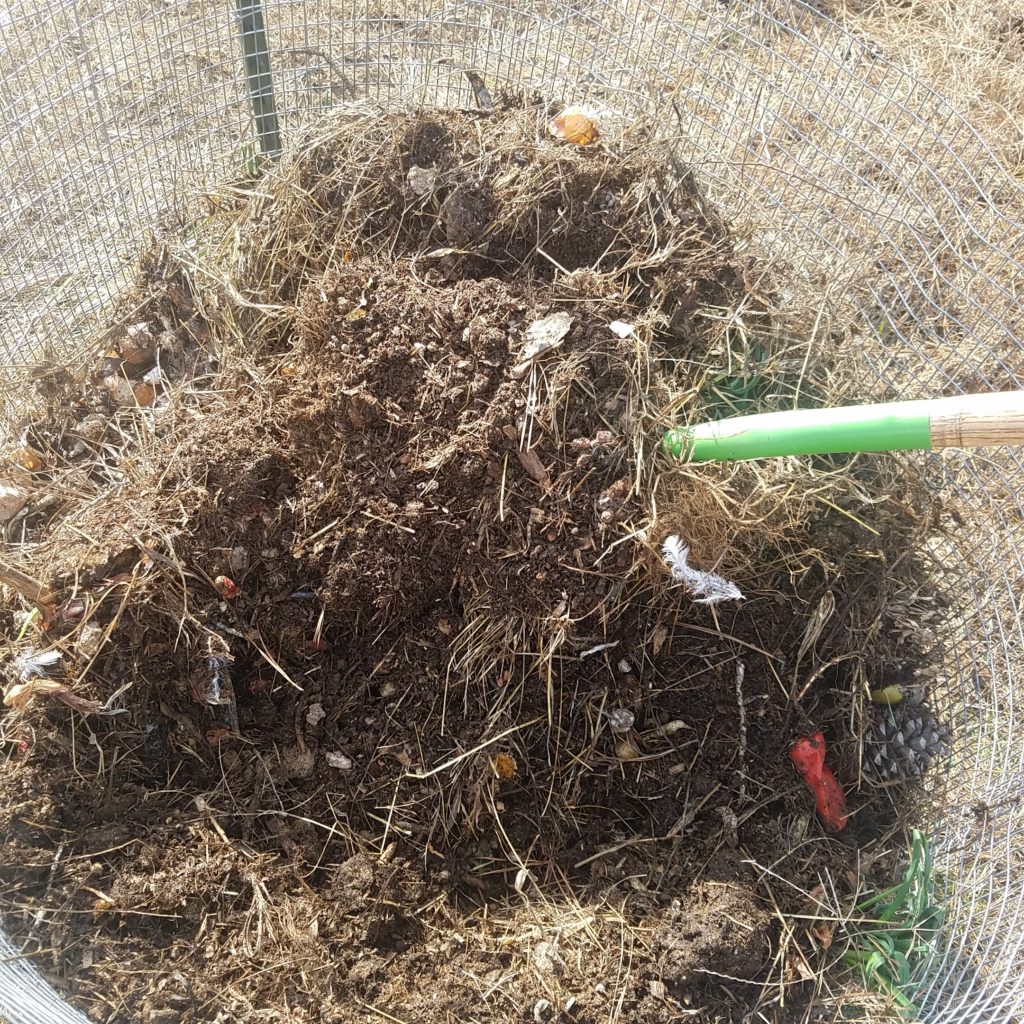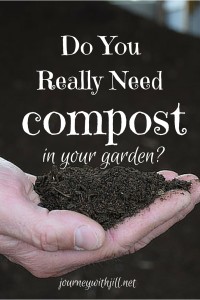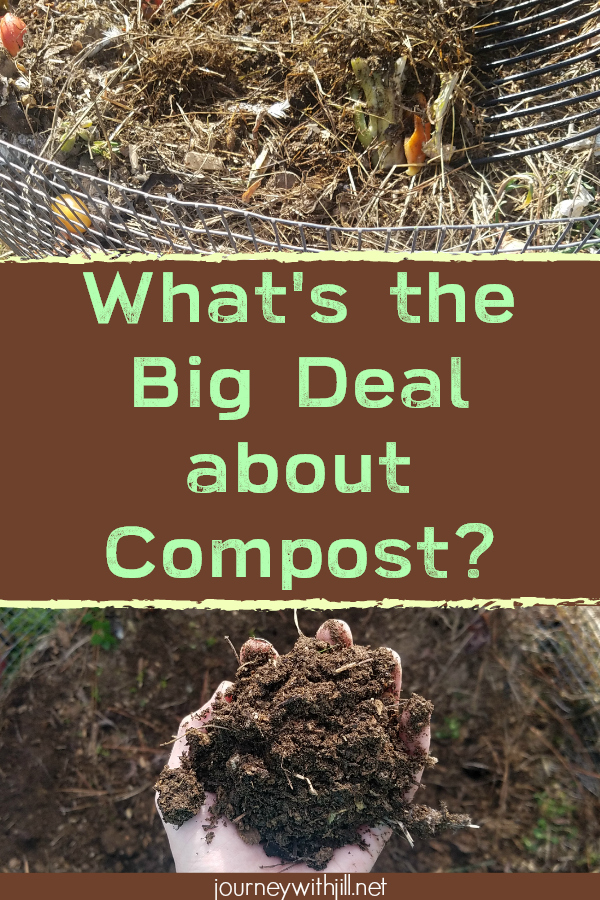Do I Really Need Compost?
Making my own compost and using it in the garden has become second nature to me. But for the beginning gardener, or a seasoned gardener accustomed to buying fertilizer each year, it’s a fair question to wonder if having compost is really necessary.
Definition of Compost
So, back to compost. What is compost exactly? To put it simply, compost is taking dead stuff and using it to make living stuff grow. Composed of materials like grass clippings, kitchen waste, manure, coffee, and more, these ingredients together break down over time into an extremely fertile medium for the garden.
Difference Between Compost and Fertilizer
The main difference between compost and fertilizer (either organic or inorganic) is that compost feeds the soil, while fertilizer feeds the plant. I use organic fertilizers for short-term purposes, while compost is my long-term plan for continued soil health and fertility.
When you add compost to your garden, you’re feeding the good microbes and soil life — good bacteria, fungi, and earthworms, to name a few. That soil life converts the organic material in compost into nutrients garden plants need. Earthworms, in particular, excrete substances that continue to help build the soil’s fertility, while their burrowing aerates the soil with the oxygen vital to the root systems of plants.
Fertilizers, by contrast, tend to focus on the “big 3” nutrients: nitrogen, phosphorus, and potassium. Compost adds minor nutrients not only beneficial for the plants but also important for our own health when we eat those fruits and vegetables.

Investing in the Long-Term
As I began preparing my garden one spring early in my garden journey, I saw up-close the long-term effects of consistently adding compost and organic matter in the soil.
On the southwest corner of my garden plot, I skimmed off early weeds and raked the soil. A dark, crumbly texture greeted me, the perfect tilth that gardeners desire.
On the northwest corner of my garden sat a freshly tilled-tilled patch of land that I had never worked before — a new part of the garden. I labored to dig trenches for the potatoes and finally gave up. The clay soil was dry and rocky on top and wet and hard underneath.
Just a few years ago, my southwest corner had been in the same condition. But with three seasons of garden growth, yearly applications of thin layers of compost, and a covering of wood chip mulch year-round, it looked like a different garden.
Do I Really Need Compost?
So, do you really need compost? Well, do you want to invest in your soil for the long-term? Do you want to introduce nutrients into the soil that will make for more natural, healthy food in your garden? Do you want to end (or prevent) a cyclic dependence on synthetic fertilizers, where you have to continually apply it year after year?
If Yes, then How?
If I’ve convinced you of the benefits of compost, you’re probably wondering how to get started. I give a broad explanation of backyard composting in my book, Flourish. I also discuss composting in-depth in this episode of the Beginner’s Garden Podcast on compost piles vs. tumblers.
A Few More Considerations
Now, there is a difference between composted manure and compost. Composted manure, while still good for your garden, is mainly nitrogen. (I use this in my garden with great results.) Compost, in contrast, contains a balanced organic matter mix for general garden applications.
Landscaping companies and nurseries also sell compost in bulk. Per cubic yard, this is typically the more economical way to go, but you’d either need a way to haul it or pay a delivery fee, and be sure to ask them the source of the ingredients. I’ve heard too many horror stories of purchased compost being tainted with herbicides, which killed an entire garden.
How much do you buy? A little goes a long way. I know some gardeners who cover their entire garden with an inch or two, while others use a shovel-full in each planting hole and around the plants once established. What you decide to do will depend mostly on your budget and your garden space.
No matter how you get it or how much you use, there’s one thing I can assure you: from my experience, using compost is one of the best decisions you can make for the long-term health of your garden, your plants, and your food.

Do you get overwhelmed with garden planning?

Subscribe here for my best tips to plan your garden in just 7 days -- all for FREE.
Plus, I'll send you my "In the Garden E-mail" on Fridays, periodic updates on garden resources relevant to you, and you'll receive access to my entire bank of free garden downloads!
You are also agreeing to our privacy policy.


Hello!
So how often do we put compost on the garden beds? Once per month? Once every season?
I do it at least once per season, although it’s a good idea to do it once in the spring and once in the fall, especially if you’re planting more than one crop in one space (like a summer garden and then a fall garden).